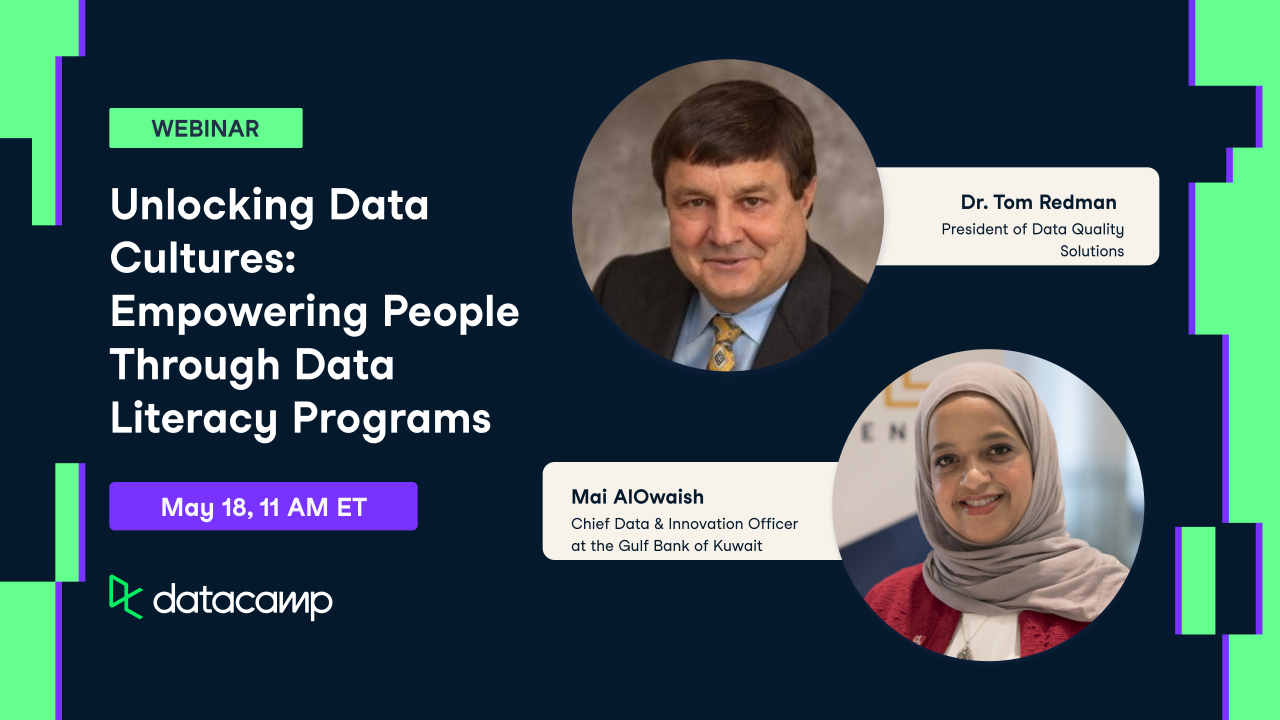Accéder au contenu principalPour les entreprises





Haut-parleurs

Mai AlOwaish
Chief Data & Innovation Officer at the Gulf Bank of Kuwait

Formation de 2 personnes ou plus ?
Donnez à votre équipe l’accès à la bibliothèque DataCamp complète, avec des rapports centralisés, des missions, des projets et bien plus encoreConnexe
webinar
Unleash the Power and Profit of a Data + People Strategy
In this session, you'll find out how to drive sustainable profits by unleashing the power of a Data + People Strategy, bridging the divide with a culture of continuous innovation and feedback.webinar
The Secret to Successful Data Literacy Programs
In this session, Ed discusses the challenges and successes of the program, along with practical tips for how to scale training at your organization.webinar
Getting ROI From Your Data Literacy Program
In this session, two seasoned Data Literacy executives walk you through a proven model for scaling data literacy that unlocks business value as your people learn new skills.webinar
Empowering Government with Data & AI Literacy
Richard Davis, CDO at Ofcom, discusses how government agencies can cultivate a culture that puts data-driven decision making and the responsible use of technology at the center.webinar
Fostering Confidence with Data Across Your Organization
Learn how to empower your entire organization with data literacy.webinar
Building Data Cultures
Learn how to build a data culture from Allianz Benelux Regional CDO Sutaman T MJoin 5000+ companies and 80% of the Fortune 1000 who use DataCamp to upskill their teams.
Loved by thousands of companies
